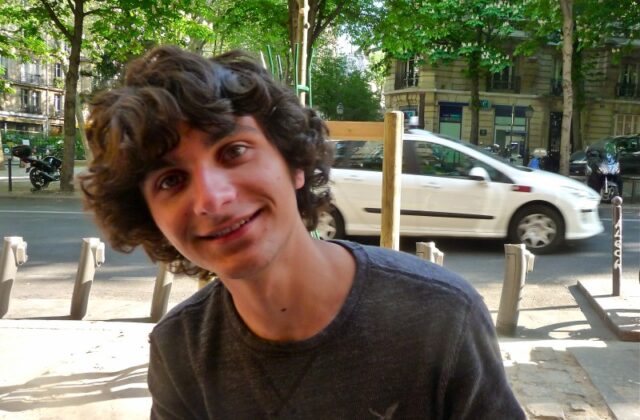Engineering With a Social Conscience
Lior Trestman Wins UConn Research Grant at End of Freshman Year
By Wiley Wood
In certain regions of the world, women spend a large part of the day fetching water. Worldwide, water-borne pathogens are the leading cause of infant death. So why not create an efficient means of transporting water that would at the same time purify it? This was the question that Lior Trestman and one of his friends, undergraduates at the University of Connecticut’s School of Engineering, asked themselves.
In response, they developed a cart that could be pulled by a single person, carry 12 gallons of water while translating the rotational energy of the wheels into the linear motion of pushing water through a set of filters.
Using the concepts of engineering to solve problems of public health and the environment is a strong motivator for Trestman, who grew up in Norfolk. Upon graduating from Northwest Regional High School last year, he entered UConn’s School of Engineering as an honors student.
This summer he is focusing on an independent research project working with the technology of microbial fuel cells. “It’s a technology for purifying waste water that was developed in the 1950s but has only recently started to make progress,” Trestman explained. The system uses bacteria to break down contaminants and simultaneously generate electricity.
It’s a zero net energy process,” added Trestman, “that could be used in developed countries where waste water treatment is typically energy-intensive, and also in developing countries where clean water is scarce.”
Trestman’s summer research is being funded by a UConn program that awards grants to select students in the summer following their freshman year. His choice of UConn, a school he almost passed over, has worked out well.
“UConn has a very poor reputation at Northwest Regional,” revealed Trestman, “and I almost didn’t apply there.”
But within weeks of entering college, Trestman fell in love with it. “I met a number of students who are not only incredibly intelligent, but driven and creative,” he said, and he has found UConn exceptionally rich in opportunities. In fact, this spring, with several other graduates of Northwestern, he returned to his high school where they made a presentation to the juniors and seniors “imploring them to forget their misconceptions” and apply to UConn.
Trestman credits his rural upbringing in Norfolk with having developed his practical sense. Embarked on a pre-med track, he is pursuing a major in biomedical engineering. “I would probably always have been interested in medicine and public health,” said Trestman, whose father is a professor of medicine and psychiatry, “but growing up on a farm definitely made me more interested in the engineering component.”
As for those microbial fuel cell’s he is working on, they consist of an anode and a cathode compartment separated by a membrane. Trestman plans to explore the properties of electrospun carbon nanofiber membranes for this purpose, both spinning the membranes in the lab and modifying them for use in microbial fuel cells.
His sense of social responsibility developed at an early age. He volunteered with the Norfolk Farmers’ Market and the town’s Economic Development Committee. He worked for several years as an intern at the Norfolk Library, where he initiated a feasibility study of converting all the light fixtures to compact fluorescent light bulbs. At UConn he has joined Doctors Without Borders, which took him to Cuzco, Peru this past March to give physicals to hundreds of children in orphanages, and Engineers Without Borders, through whom he is working to bring clean water to a village in Ethiopia.
Trestman considers growing up in Norfolk to have been an asset. “Because it’s such a small town, and such a diverse town with so many interesting and colorful people, you get exposed to a lot of different life experiences.”

